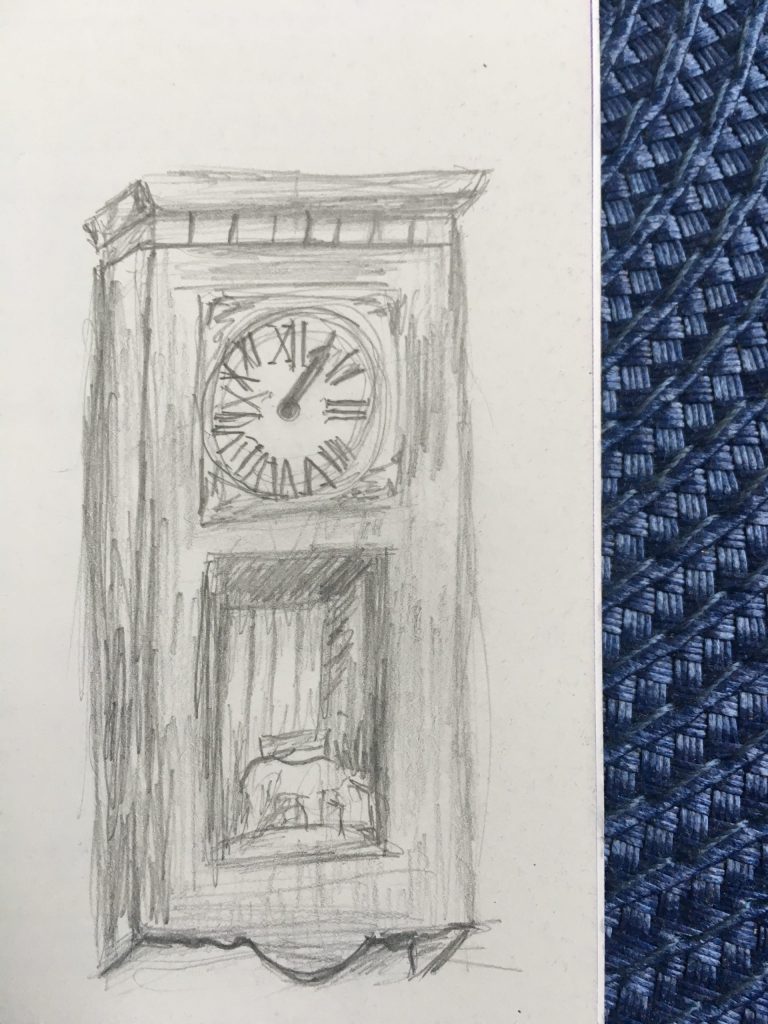And yet, we can acknowledge all of this and look at what it happening instead, especially when it comes to learning. As the pandemic continues, it’s clear we have some significant time yet here in Canada where schools will not be open and I’m noticing there seems to be a sort of pattern to the focus.
Then, a couple of weeks later, in our province and in many other places, some online material was put out by school boards and there was talk both among parents and on the news about finding ways to support children with online learning. Efforts were made to get the technology out to families who might not have it, or have enough. Getting back on track became the focus. There were some
very concerned articles about “summer slide” or in this case, “spring and summer slide.” Although well-meaning, I think there is something not being recognized here about true, deep learning. If kids are typically losing substantial percentages of what they’ve learned (or are perceived to have, depending on how that is being measured) over the course of regular summer holidays, this is not the kind of integrated and meaningful learning that I think we’re looking for.
In the last couple of weeks or so, I’ve noticed a shift in conversations and even the way things are reported in the news. Some families have adjusted quite easily to doing a bit of online work from their schools and notice that it doesn’t take very long. Others have found it frustrating either technologically or just from a family dynamics perspective and decided that they’ll do what they can, but put their focus on connecting as a family and getting through. Others still have found it to be busy work sent out with good intentions, but not seeming relevant and are pretty much forgoing it to just make the most of this freer time. They get that the school boards need to send something out but some of the work is either behind where their child already is or complicated and out of context beyond what is realistic for them to suddenly tackle.
The common denominator, regardless of what is working for families with the online work, is that kids (and some parents and grandparents) have lots of time to get creative, resourceful and connected to each other and their community. Yes, even when they can’t get too close to neighbours, kids and parents are finding the coolest ways to build community like
this boy and
these brothers and their dad and
this mother and daughter.
A few weeks ago, there was so much news lamenting the large amount of time with kids and how to keep them entertained and educated. Recently, the same newscast has had a bit less about that and a bit more about kids organizing window displays and I think the creative spirit of kids, parents and communities is shining through. I’ve heard lots of really positive comments from parents these last few weeks and at the very least, several people sound okay. Articles like
this one have surfaced with both teachers and parents saying – this is okay. The pandemic isn’t okay but kids learning in different ways during this pandemic is okay. We’re nothing if not resilient, we humans:).
We have all been missing lots of things in our regular lives but we are doing other things instead. In fact, we are learning other things instead. People have come across new books, movies, documentaries and series. We have created new cleaning and organizing routines. We have found out more about our extended families. We have learned more about sharing – our time, our ideas, our stuff, our space. We have gotten to know each other more deeply. We have learned how to fix things and make something new. We have learned new ways to shop and cook. We have learned new ways to worship and stay connected with communities of faith. We have invented and played interesting games. We’ve learned how to make the most of open time. We’ve learned new ways of managing time and juggling work with kids or elderly relatives – some of them have been more effective than others. We learn from what doesn’t work. We’ve learned how to grapple with difficult decisions, often serious ones involving health and finances.
Kids have been learning too – often very similar, if not the same, things. It reminds me of How the Grinch Stole Christmas. All the outward materials of the season were taken but the Whos loved anyway! Right now, the outward materials of society’s most common structure of learning are temporarily gone but the people learn anyway! The kids learn anyway! It’s taken a bit more thought, more resourcefulness, more creativity but isn’t that actually what learning is? Thinking it through, finding ways to do things and creating? We’re all learning to find ways to learn – haha!




I think some of it is relative to a child’s age. For parents of kids who are 7 or 8, I don’t know if parents think that a few months will have longterm effects. I think it’s more the practicality of high school credits, for example, because there is such a specific number and particular prerequisites. It’s harder for parents to just jump in with support as easily. I agree though. I do think that this is a pocket of time in the big picture. It might just be harder to get your head around it in Grade 11 or 12 than it is in Grade 2. A lot of concern (including the related article you’ve included) is around online learning as well as kids from lower income brackets. You’ve acknowledged some of that here though, that these thoughts aren’t necessarily across the board. Thanks for more good thoughts!
Hi Allie. Yes, I think you’re right. It makes sense that it would be relative to a child’s age. If I think about the details involved in staying on track with high school credits, the stakes are higher. I think equal to that is a sense of loss of the way students imagined their year playing out with things such as graduation ceremonies, etc. Interestingly though, the news clips I’ve seen and heard have rarely been about those logistics and seem to be much more about elementary school kids, so I think that is what was on my mind. I actually think that any age group will just come through this differently rather than behind, but I feel that way particularly about elementary kids because of the difference in the way things are set up. I don’t mean that they aren’t missing friends and regular routine, but that for many of them, their learning hasn’t stopped – it’s just different. Honestly, I feel we have to give kids a lot of credit for their own learning and parents a lot of credit for their ability to facilitate. Lots of families are doing a great job in the midst of balancing work, isolation, etc.
As for the online piece, my kids have had some impressive online learning opportunities and some not so impressive – lots of factors. The low income concern is more food for thought and admittedly, at least two of the three clips in my post were examples kids who seem to have good access to technology,etc, but maybe more than that, parents who are taking time to support their endeavors. I don’t think that low income can be ignored but I also see it as a bigger conversation … I have some thoughts but they’re not internet-ready;). Thank you so much for your comment – made me think.
We have been enjoying time together and I think that it’s not so much that we are doing very many new things but that we have more time to complete the things we’re doing or get more involved. So there are big tracks built all over the floor for trains and cars and it just keeps getting more and more elaborate😂😂.
Really good points here. I do still think that there are a lot of people who are super concerned about the academic setbacks. People are used to measuring learning in a certain way so might be feeling they aren’t doing enough or doing things the right way. I’m hopeful that people start to really experience how creative and resourceful kids are. It often takes some time to really see the big picture and how it unfolds. Like you, love to see the neat things that kids are coming up with!
Good point that it doesn’t always need to be about new things but also just having more flexibility to pursue things more deeply. It sounds like there’s some deep pursuit happening at your house with the tracks and vehicles;).
I agree that lots of people continue to be concerned and I think that we’ve generally reached a sort of weird plateau point/lull this last week or so where many of us are kind of out of sorts at the moment, at least that’s what I’ve noticed. I think that doesn’t help.
I also agree entirely that it takes some time to see the big picture and how learning unfolds. My own experience is that it often doesn’t happen in regular chunks – you’re not sure what’s percolating for a while and then there’s suddenly a deep understanding or leap in something. That is very hard (impossible?) to measure in any kind of standardized way. Thank you for your comment, Liz:).